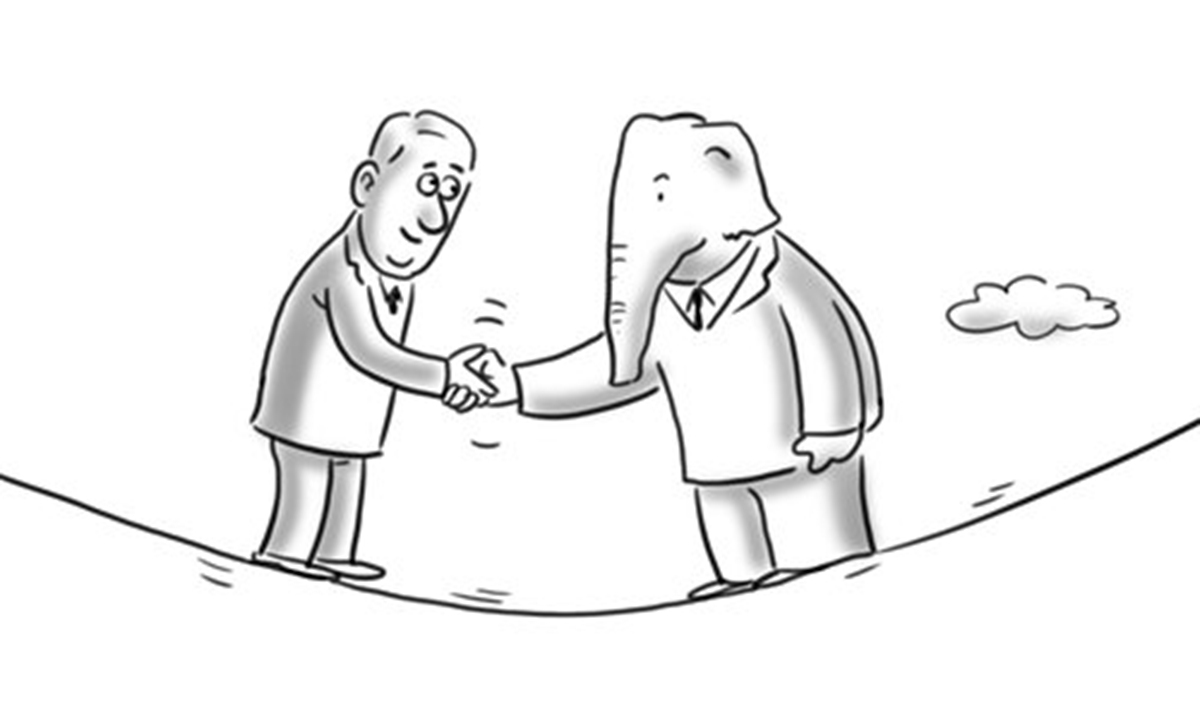Satoshi Suzuki’s LAC statement serves multiple purposes
Source:Global Times Published: 2020/7/6 11:27:34

Illustration: Liu Rui/GT
Satoshi Suzuki, ambassador of Japan to India, tweeted Friday that "Japan opposes any unilateral attempts to change the status quo" after he had a conversation with Indian Foreign Secretary Harsh Shringla. Indian media outlets quickly interpreted it as Tokyo's support for India and criticism against China. Apparently, amid escalating China-India tensions, India needs to solicit external support.The side that attempts to change the status quo is not China. In the latest round of China-India border tensions, Beijing has strictly abided by the agreements reached with New Delhi. It was the Indian troops that severely departed from the consensus, crossed the Line of Actual Control (LAC), provoked and attacked Chinese soldiers. Even Indian Prime Minister Narendra Modi said China did not enter Indian territory.
Why did India media hype Suzuki's statement as Japan's support for India? The reason may be that Tokyo has territorial disputes with Beijing over the Diaoyu Islands, and has also repeatedly stirred disturbances in this regard. For example, in recent days, a Japanese local government's bill was approved to change the administrative designation of the disputed Diaoyu Islands. Nursing a grievance over China's territorial claims over the Diaoyu Islands, Japan has made provocations on a number of issues, such as the East China Sea and South China Sea disputes and Hong Kong affairs.
Tokyo has also been trying to foster closer relations with New Delhi in an attempt to realize its purpose of expanding its presence in the Indian Ocean. Joint military drills in the Malacca Strait in the Indian Ocean Region between Indian and Japanese warships carried out on June 27 exemplify Japan's ambitions.
In fact, Japanese media reported Tokyo's latest attempts to expand cooperation in defense intelligence sharing with New Delhi, Canberra, and London, beyond the scope of only Washington. Japan has been playing a proactive role in promoting the Quad - a group including the US, Japan, Australia and India. These efforts are meant to expand its scale of influence and to seek more partners to gain more intelligence regarding China in order to contain the latter's development.
So far, some US politicians including Secretary of State Mike Pompeo have applauded India's hard-line nationalist moves against China such as banning 59 Chinese apps, leaving the impression on Indians that the US will side with them regarding disputes with China. Amid escalating China-India tensions, Australia has also strengthened its partnership with India. The US and its allies have been trying to win over India, because it is an important country in the US' Indo-Pacific Strategy and in these countries' strategic calculations.
In the face of such acts, China should keep upholding its independent foreign policy of peace. China promotes peaceful negotiations with India, Japan and other countries to resolve their border and maritime disputes. It remains to be seen whether the US, Japan and Australia could rope in India for their strategic calculations to contain China. After all, India may carefully consider the alliances against China and may not easily agree to the US-Japan-Australia alliance's request.
The article was compiled by Global Times reporter Lu Yuanzhi based on an interview with Zhang Junshe, a research fellow at the PLA Naval Military Studies Research Institute. luyuanzhi@globaltimes.com.cn
RELATED ARTICLES:
Posted in: VIEWPOINT,ASIAN REVIEW